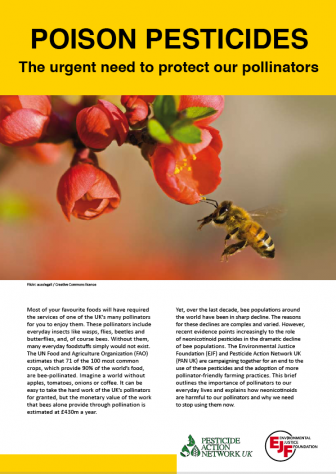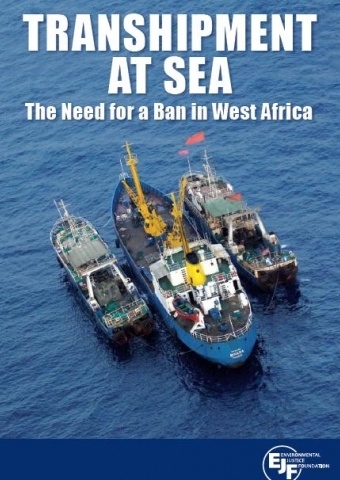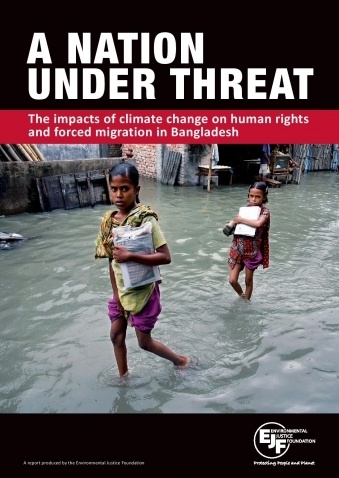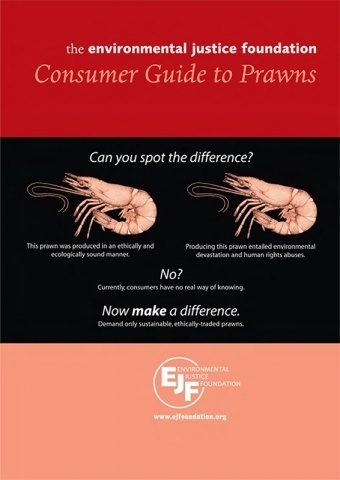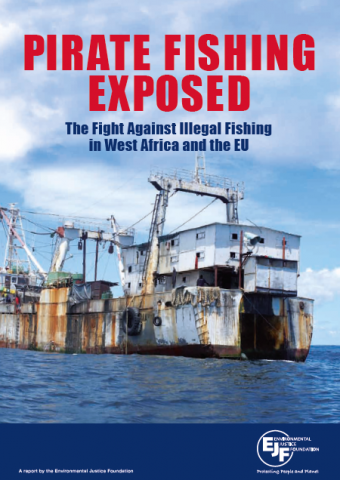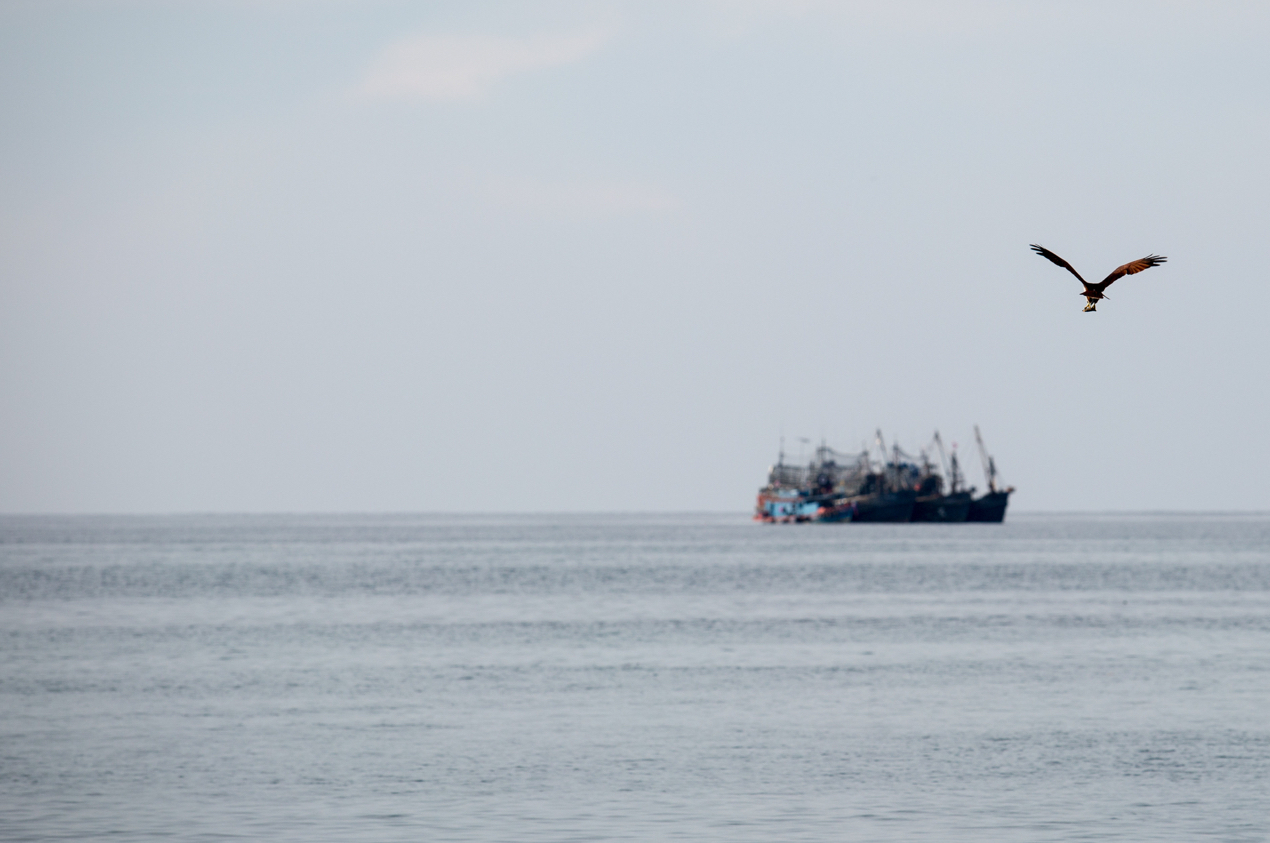
Search results
Showing 1401-1440 result returned for ""
-
News & Media
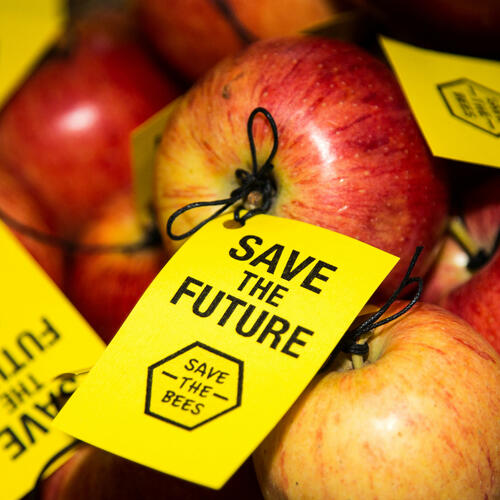 Mar 14, 2013A major opportunity to protect our beesRead
Mar 14, 2013A major opportunity to protect our beesRead -
News & Media
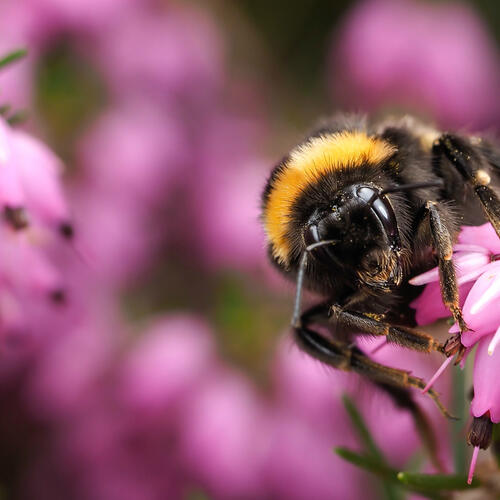 Feb 21, 2013EJF and other environmental groups call on the government to support European pesticide restrictionsRead
Feb 21, 2013EJF and other environmental groups call on the government to support European pesticide restrictionsRead -
News & Media
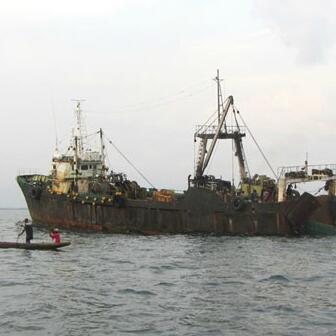 Feb 20, 2013EJF supports bipartisan efforts in the United States to end pirate fishingRead
Feb 20, 2013EJF supports bipartisan efforts in the United States to end pirate fishingRead -
News & Media
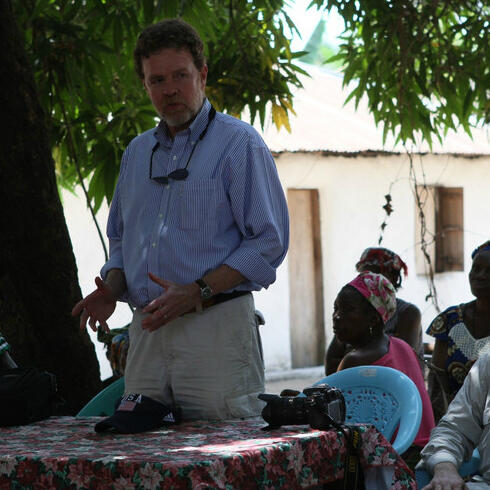 Feb 14, 2013We have turned a corner in the fight against pirate fishingRead
Feb 14, 2013We have turned a corner in the fight against pirate fishingRead
-
News & Media
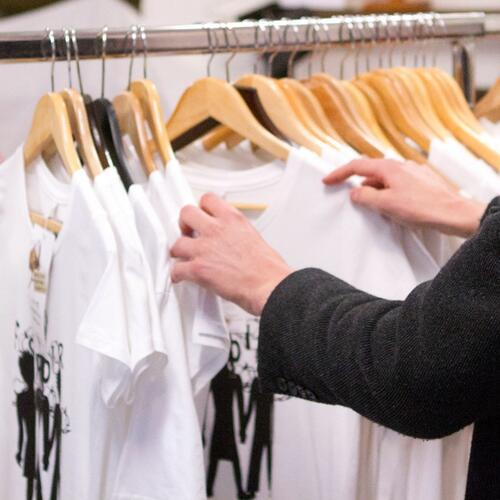 Feb 14, 2013URBAN SWISH at EJF’s pop up shop this weekRead
Feb 14, 2013URBAN SWISH at EJF’s pop up shop this weekRead -
Reports
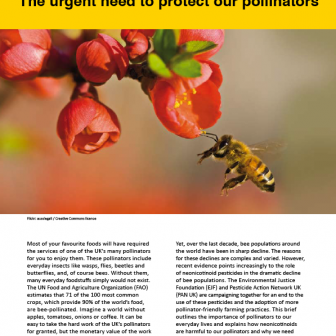 Feb 12, 2013Poison Pesticides: The Urgent Need to Protect Our PollinatorsRead
Feb 12, 2013Poison Pesticides: The Urgent Need to Protect Our PollinatorsRead -
News & Media
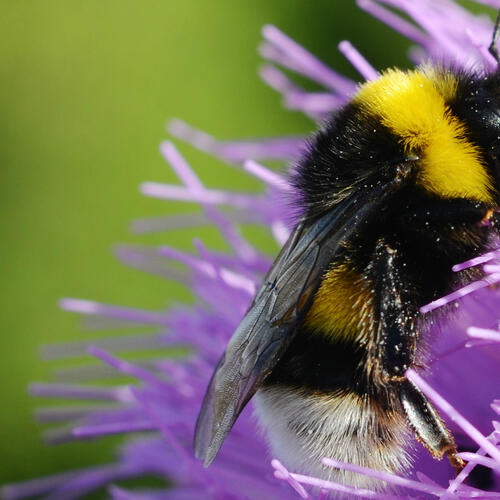 Feb 12, 2013EJF & PAN UK launch campaign to protect the UK's pollinatorsRead
Feb 12, 2013EJF & PAN UK launch campaign to protect the UK's pollinatorsRead -
Reports
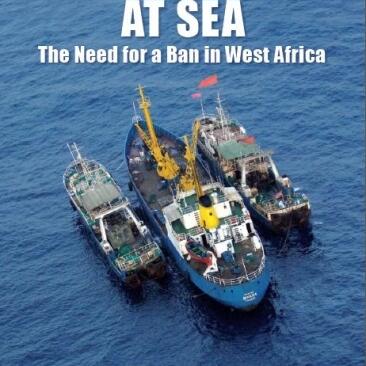 Feb 11, 2013Transhipment at Sea: BriefingRead
Feb 11, 2013Transhipment at Sea: BriefingReadTranshipment at Sea: The Need for a Ban in West Africa draws heavily on the evidence EJF has gathered through its work towards the eradication of IUU, or ‘pirate’ fishing in West Africa. It explains how the international movement of fisheries products – both legal and illegal – often depends upon transhipments. The complexities involvement in fisheries regulations mean that transhipments can be problematic and are often linked to illegal fishing activities. EJF’s call on coastal and flag States to ban transhipments at sea in West Africa is part of the wider effort to combat IUU, or ‘pirate’, fishing.
This new briefing discusses the lack of control in authorised transhipments and the fact that illegal transhipment at sea is widely used by IUU fishing vessels to gain access to market. It makes the case for a ban on transhipments of fish at sea in West Africa as well as a ban on the entry of seafood from such transhipments into the European market.
-
News & Media
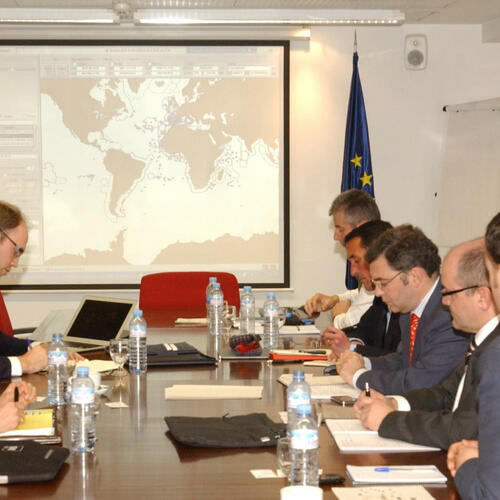 Jan 18, 2013EJF met with the Spanish Government this week to discuss actions to combat pirate fishingRead
Jan 18, 2013EJF met with the Spanish Government this week to discuss actions to combat pirate fishingRead -
News & Media
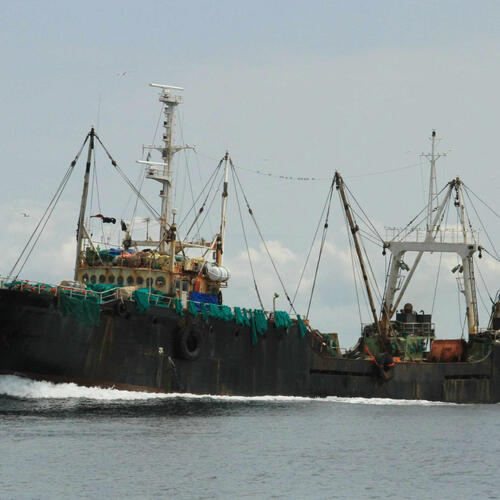 Jan 16, 2013Gabonese Government suspends fishing to insist on best practices for sustainabilityRead
Jan 16, 2013Gabonese Government suspends fishing to insist on best practices for sustainabilityRead -
News & Media
 Jan 04, 20136 more weeks for EJF's pop up shop on Carnaby StreetRead
Jan 04, 20136 more weeks for EJF's pop up shop on Carnaby StreetRead -
News & Media
 Dec 29, 2012Pirate fishing vessel flees Sierra Leone to avoid sanctionsRead
Dec 29, 2012Pirate fishing vessel flees Sierra Leone to avoid sanctionsRead
-
News & Media
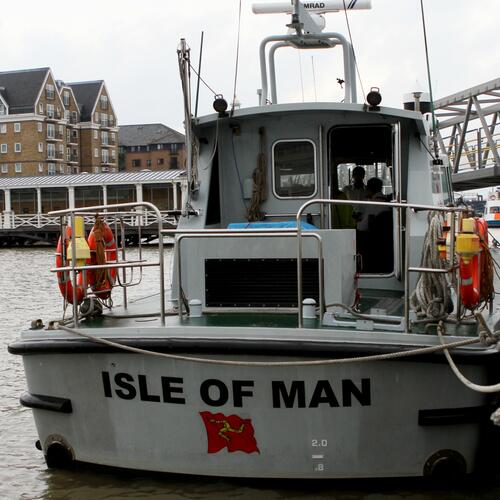 Dec 21, 2012Sierra Leone arrest pirate vessel using donated Isle of Man patrol boatRead
Dec 21, 2012Sierra Leone arrest pirate vessel using donated Isle of Man patrol boatRead -
News & Media
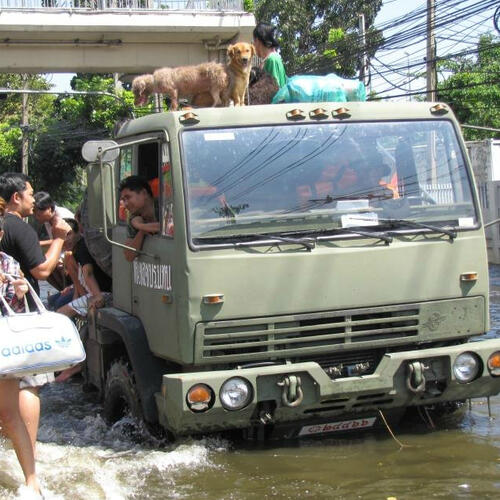 Dec 11, 2012Climate change: It’s not just an environmental issue; it’s a human rights issue tooRead
Dec 11, 2012Climate change: It’s not just an environmental issue; it’s a human rights issue tooRead -
News & Media
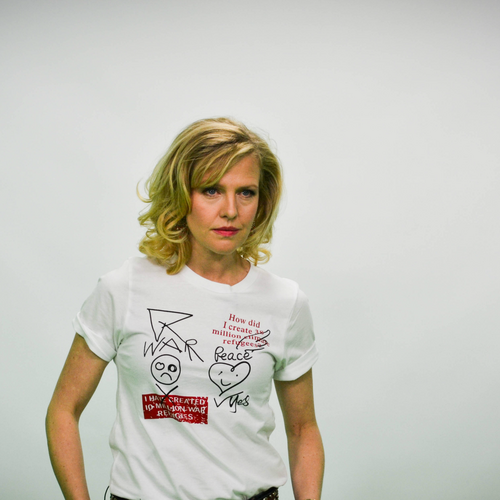 Dec 10, 2012Responding to Doha on Human Rights DayRead
Dec 10, 2012Responding to Doha on Human Rights DayRead -
News & Media
 Dec 10, 2012Santas and Elves Run for EJFRead
Dec 10, 2012Santas and Elves Run for EJFRead
-
Reports
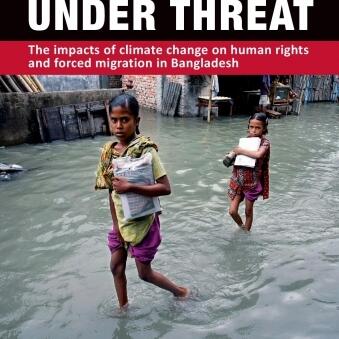 Dec 06, 2012A Nation Under Threat: The impacts of climate change on human rights and forced migration in BangladeshRead
Dec 06, 2012A Nation Under Threat: The impacts of climate change on human rights and forced migration in BangladeshReadThe report is based on the findings of an EJF field investigation in Bangladesh. It reveals the significant damage to vital infrastructure, widespread devastation to housing, reduced access to fresh water for drinking, sanitation and irrigation, and rising poverty and hunger caused by increasingly extreme weather events and the gradual but sustained deterioration in environmental security.
-
News & Media
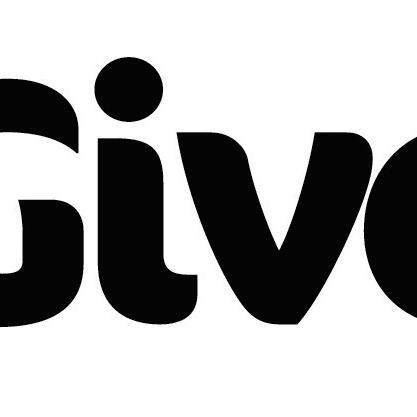 Dec 04, 2012Give a little and change a lot: EJF’s climate refugees campaign joins The Big Give Christmas ChallengeRead
Dec 04, 2012Give a little and change a lot: EJF’s climate refugees campaign joins The Big Give Christmas ChallengeRead -
News & Media
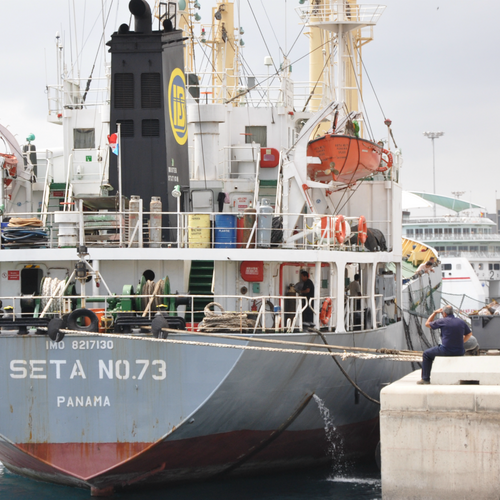 Nov 16, 2012EJF responds to the first EU warning to countries involved in pirate fishingRead
Nov 16, 2012EJF responds to the first EU warning to countries involved in pirate fishingRead -
News & Media
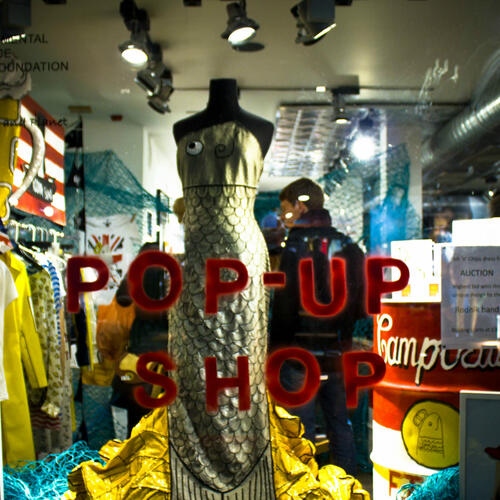 Nov 14, 2012Ethical fashion launch party at EJF’s Pop Up ShopRead
Nov 14, 2012Ethical fashion launch party at EJF’s Pop Up ShopRead
-
News & Media
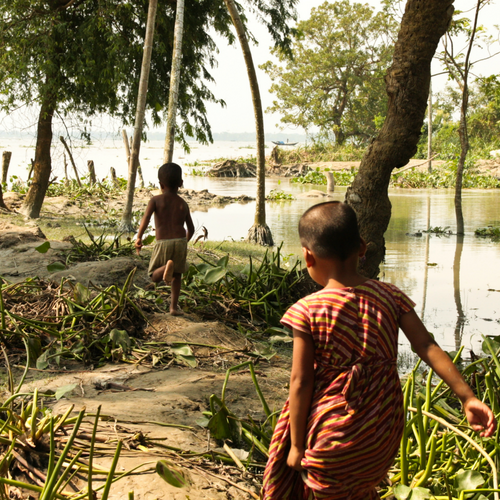 Nov 09, 2012The big give 2012Read
Nov 09, 2012The big give 2012Read -
News & Media
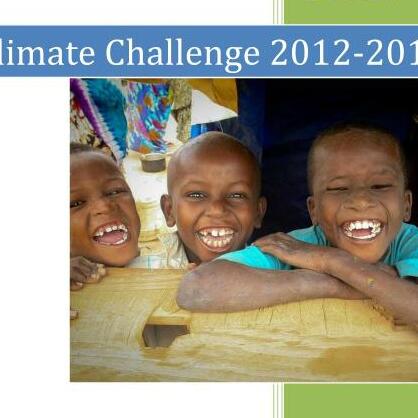 Nov 07, 2012EJF’s Climate Challenge and Student PackRead
Nov 07, 2012EJF’s Climate Challenge and Student PackRead -
Reports
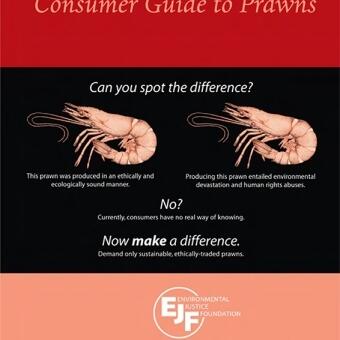 Oct 18, 2012EJF Consumer Guide to PrawnsRead
Oct 18, 2012EJF Consumer Guide to PrawnsReadPrawn production has been linked to a number of environmental problems and human rights abuses. This guide aims to clarify the issues and help you make the right choices when buying prawns.
-
Reports
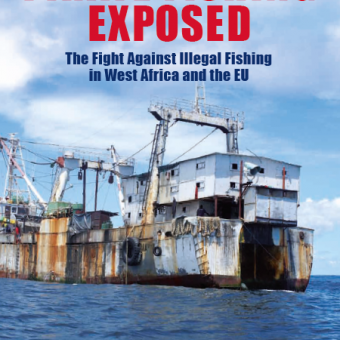 Oct 11, 2012Pirate Fishing ExposedRead
Oct 11, 2012Pirate Fishing ExposedReadThis report by EJF exposes the continued role of the European Union and East Asian countries in facilitating a market for seafood illegally caught in West Africa. Following a two-year investigation by The Environmental Justice Foundation (EJF), “Pirate Fishing Exposed: The Fight Against Illegal Fishing in West Africa and the EU” highlights how local fishing communities are fighting back to combat this illegal trade.
During the two-year surveillance investigation, EJF documented rampant pirate fishing in Sierra Leone and laundering of the illegal catch into the European seafood market by vessels accredited to export fish to the EU.
-
News & Media
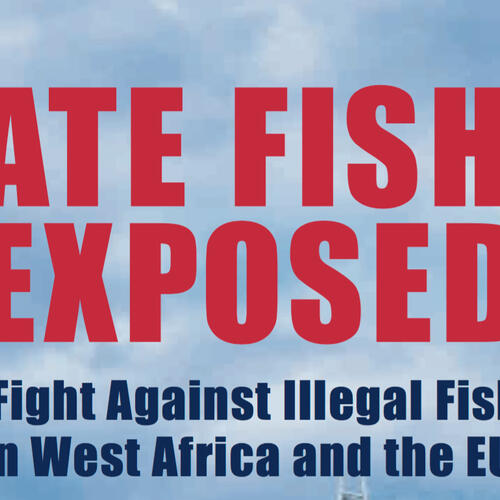 Oct 11, 2012EJF launches new report: Pirate Fishing ExposedRead
Oct 11, 2012EJF launches new report: Pirate Fishing ExposedRead -
News & Media
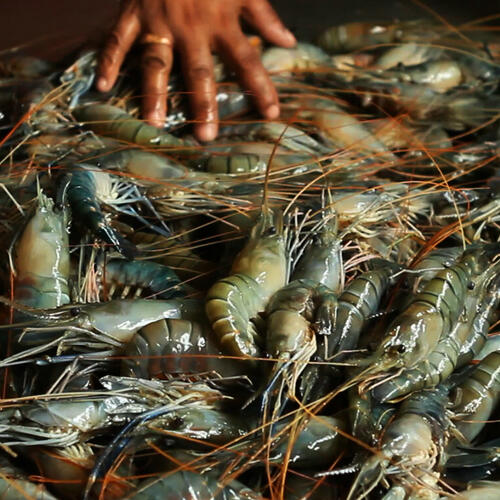 Oct 10, 2012Where does your shrimp come from?Read
Oct 10, 2012Where does your shrimp come from?Read -
News & Media
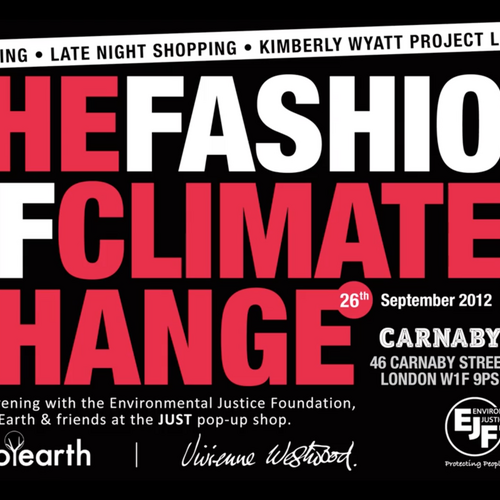 Oct 09, 2012Launch of EJF’s JUST Pop Up Shop on London's Carnaby StreetRead
Oct 09, 2012Launch of EJF’s JUST Pop Up Shop on London's Carnaby StreetRead -
News & Media
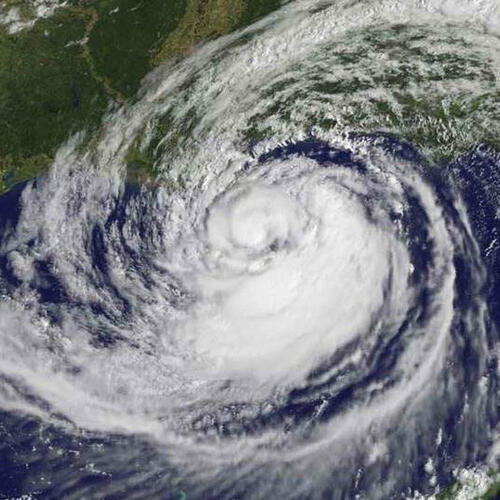 Oct 05, 2012Climate Alert: September 2012Read
Oct 05, 2012Climate Alert: September 2012Read
-
Films
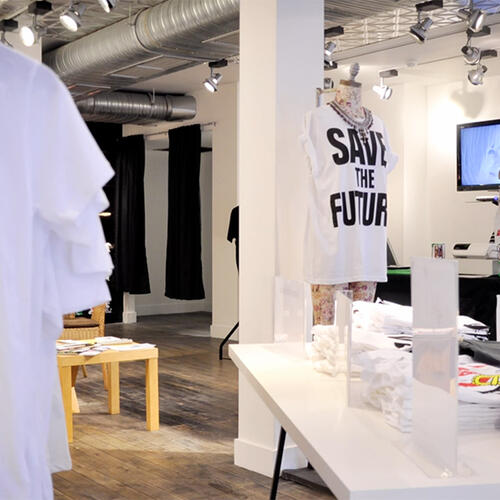 Oct 03, 2012Just: Pop Up Store in Carnaby Street 2012Read
Oct 03, 2012Just: Pop Up Store in Carnaby Street 2012ReadJust: Pop Up Store in Carnaby Street 2012
You'll find lots of lovely T-shirts in support of our campaigns for human rights and environmental consciousness. All our T-shirts are made of organic, fairly traded cotton in low-carbon, wind-powered factories that respect the environment and workers' rights.
If you can't make it to Carnaby Street, take a look at our online shop and get inspired: www.just-for.co.uk
-
Films
 Oct 02, 2012Just For: Behind the ScenesRead
Oct 02, 2012Just For: Behind the ScenesReadJust For: Behind the Scenes
In celebration of our growing JUST FOR collection, which now includes over 26 designs, we're giving you the opportunity to see 'behind the scenes' at our star studded photo shoots with this short film featuring David Gandy, Lily Cole, Diana Vickers and many others as they show their support by being photographed in our designer t-shirts and sweatshirts.
-
Films
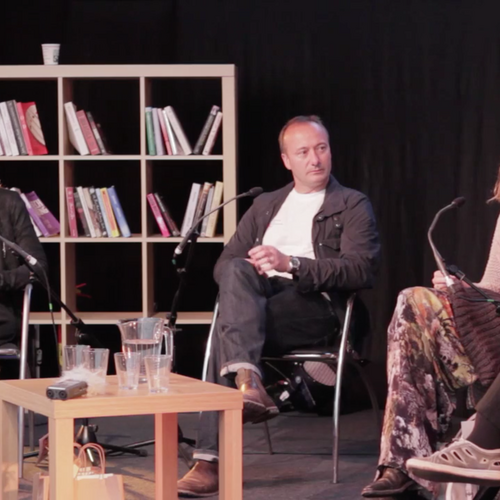 Oct 01, 2012Sharks & BeautyRead
Oct 01, 2012Sharks & BeautyReadSharks & Beauty
Hay Festival 2013 - Lily Cole, Alannah Weston and Steve Trent discuss the decline of global shark populations and their use in the beauty trade and beyond.
-
Films
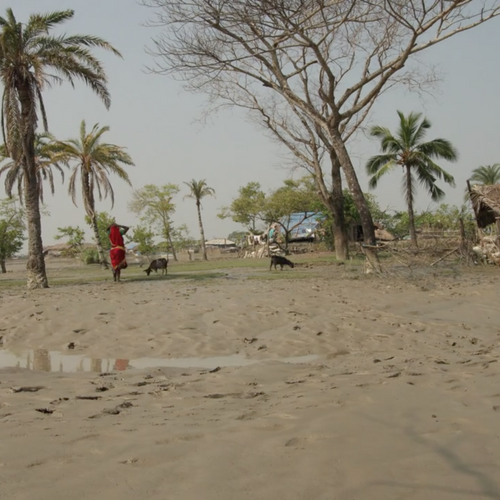 Sep 26, 2012Two Hours in JaliakhaliRead
Sep 26, 2012Two Hours in JaliakhaliReadTwo Hours in Jaliakhali
Jaliakhali was badly affected by Cyclone Aila in 2009, and this footage (shot approximately 18 months after the cyclone hit) shows how the area had still not recovered from this extreme weather event. While the tidal patterns themselves are unchanged, with the embankment damaged by Aila, the village now floods with every high tide, illustrating the vulnerability that coastal and riverine communities are forced to live with. Most of the homes, temples, and schools have been destroyed. The local bazaar disappeared, too. Constant flooding has made the soil infertile. Most of the villagers now live in makeshift shelters on what little areas of raised ground remain, and unemployment and lack of food are becoming major problems for residents.
The residents of this village who have been forced to migrate join millions of others around the world, displaced from their homes and land by declining environmental conditions. There are now more people displaced by climate-related natural hazards each year than there are refugees fleeing persecution or conflict. The numbers will increase as the negative impacts of climate change become increasingly apparent with extreme weather events including hurricanes and cyclones becoming more dangerous, flooding and drought becoming more frequent and longer-lasting, and sea levels rising.
-
News & Media
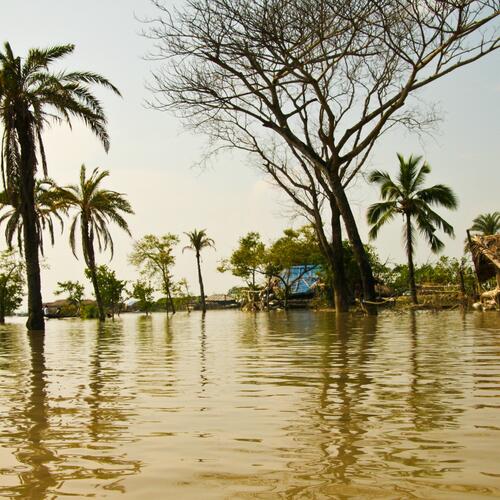 Sep 26, 2012NEW FILM: Two Hours in Jaliakhali, BangladeshRead
Sep 26, 2012NEW FILM: Two Hours in Jaliakhali, BangladeshRead -
News & Media
 Sep 26, 2012Last few spaces for Fashion of Climate ChangeRead
Sep 26, 2012Last few spaces for Fashion of Climate ChangeRead -
Films
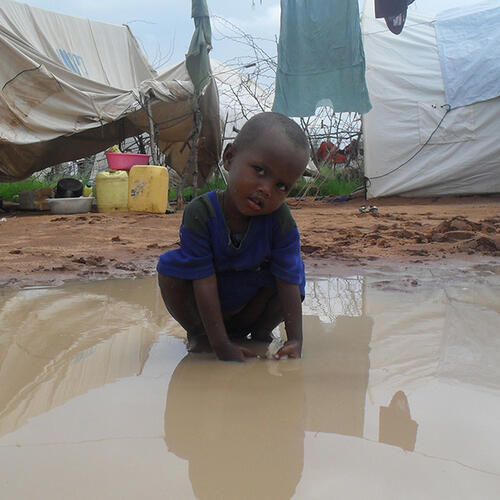 Sep 25, 2012Climate Change and Human RightsRead
Sep 25, 2012Climate Change and Human RightsReadClimate Change and Human Rights
In many of the world's poorest countries, its impacts already undermine people’s right to life, health, food, water, housing and self-determination. Where the impacts are felt most acutely, the only way to survive is to move. Today, these climate refugees outnumber refugees fleeing persecution and violence by three to one.
EJF works to raise awareness of this humanitarian crisis and ensure the well-being and welfare of those affected. We campaign for a new, legally-binding instrument for their legal recognition, protection and assistance.
-
Films
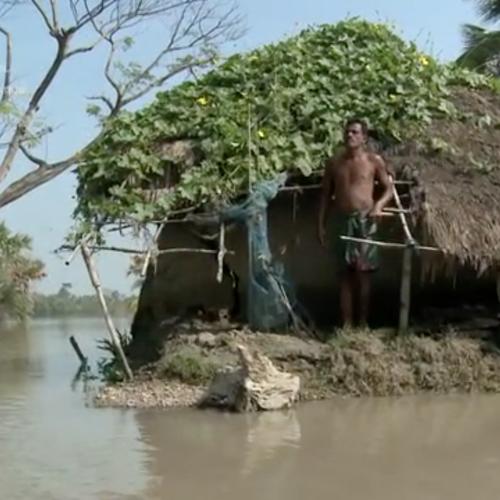 Sep 24, 2012Bangladesh: Land of RiversRead
Sep 24, 2012Bangladesh: Land of RiversReadBangladesh: Land of Rivers
In Bangladesh, more than 80% of the population survive on less than $2 a day. The "multiplier effect" of climate change stands to push people deeper into poverty, undermining progress on development and even threatening regional stability.
In this short film, EJF explains how climate change is having a profound human impact on one of the world's poorest countries.
-
Films
 Sep 22, 2012Save the FutureRead
Sep 22, 2012Save the FutureReadSave the Future
To celebrate the launch of the iconic "Save the Future" t-shirt at H&M, British fashion designer Katharine Hamnett talks about the campaign. Behind-the-scenes footage included.
-
Films
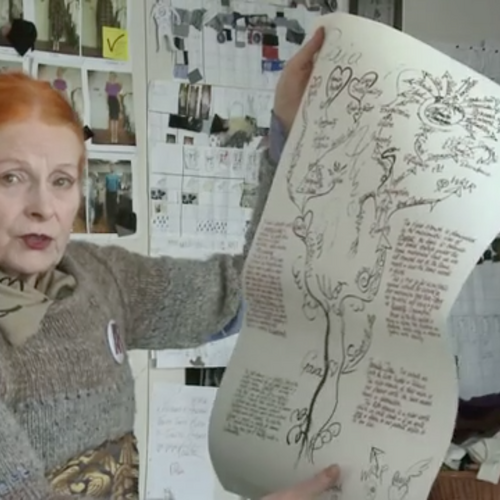 Sep 21, 2012Vivienne Westwood on her "War and Peace" T-shirtRead
Sep 21, 2012Vivienne Westwood on her "War and Peace" T-shirtReadVivienne Westwood on her "War and Peace" T-shirt
With thanks to Marc Monserat and Nicolas Jaar.
-
News & Media
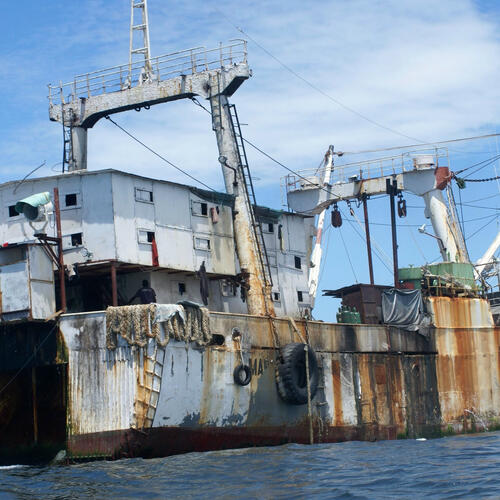 Sep 21, 2012Sierra Leone issues record fineRead
Sep 21, 2012Sierra Leone issues record fineRead -
Films
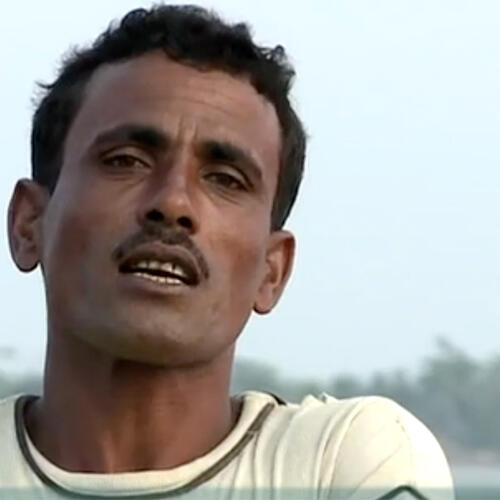 Sep 20, 2012Home Truths: Anil Krishna RoyRead
Sep 20, 2012Home Truths: Anil Krishna RoyReadHome Truths: Anil Krishna Roy
There's No Place Like Home: Campaigning for environmental security and human rights
Each year, millions of people are forced from their homes and land by climate-related, natural disasters. Some of these people are displaced by sudden onset storms and flooding, others by longer term hazards such as drought and desertification. Most are from the world’s poorest and most vulnerable countries. Many face an uncertain future, with nowhere to go and no means to survive.
EJF works to raise awareness and improve the well-being and welfare of these climate refugees. We campaign for a new, legally-binding instrument for their legal recognition, protection and assistance.
Help us get their voices heard
EJF’s Home Truths – the Climate Witness Network is working to connect people around the world, empowering them to start a dynamic conversation on climate change, providing a platform where people can share their thoughts, ideas and hopes. EJF is helping individuals and communities to document the issues that affect them, using photography and film to show what it is like to live on the frontline of climate change.
